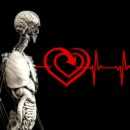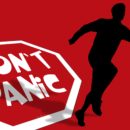Driving Fears & Driving Avoidance in Teens & Young Drivers
Reader Question: My daughter just turned 15, and no matter what I say, I can’t seem to convince her to practice her driving. It’s strange, because in the past, all she could do is talk about how excited she was to finally get her permit. I truly thought that she’d be practicing constantly once she was legally able to. Have you seen this before? Could her driving avoidance possibly be related to her OCD? Sincerely, Stressed-Out Parent Answer: Maybe, maybe not. Driving Fears May Be Normal… Driving-related anxiety is a completely normal phenomenon. For many people, learning to drive is the first time that they are individually responsible for handling a situation that could potentially be life-threatening. Although car accidents are (hopefully) rare for most individuals, accidents can be harmful (or deadly) when they do occur. Being in charge...
Read MoreVomit Phobia – Fear of Vomiting (Emetophobia)
Flu season will be quickly upon us and with it comes an unfortunate increase in the likelihood of experiencing fevers, coughs, runny noses, vomiting, and the like. Although no one enjoys being sick, this time of year poses particular challenges for individuals suffering from “vomit phobia”, or emetophobia, the fear of throwing up. The fear of vomiting can affect individuals of all ages. It sometimes emerges in childhood and, if untreated, may follow a relatively chronic course. However, it can also develop well into adulthood, sometimes taking root after a negative health experience (e.g., after getting food poisoning or after experiencing an episode of severe or uncontrolled vomiting). Vomit Phobia in Children and Teens Consequences associated with the fear of throwing up can be extreme. In children, vomit phobia can lead to school refusal and avoidance. Academic performance may...
Read MoreAgoraphobia – Symptom Attacks, Triggers, Panic, & Avoidance Behaviors
Let’s dispel a common misconception about agoraphobia. Agoraphobia is not a fear of the outdoors. Many people mistakenly believe this myth, due to the word’s Latin roots. Because agoraphobia can be broken down into the roots agora (“marketplace”) and phobia (“fear of”), many people assume that agoraphobia is a “fear of the marketplace” or a fear of being in wide open spaces. What is agoraphobia? However, this literal interpretation is different than what psychologists mean when they use the term agoraphobia. Clinical psychologists, therapists, and psychiatrists conceptualize agoraphobia as a fear of experiencing physical symptom attacks in certain types of situations (Zuercher-White & Pollard, 2003). Symptom attacks include full-blown panic attacks, limited symptom panic attacks (sweating, dizziness, disorientation, difficulty breathing. heart pounding, nausea), diarrhea, other gastrointestinal (GI) issues, vomiting, headaches, and feelings of dissociation, depersonalization, or derealization. Agoraphobia-related Situations The...
Read MorePanic Attack Causes: Fight-or-Flight & the Sympathetic Nervous System
Panic attacks feel awful. However, despite the unpleasantness of panic attacks, we’re actually lucky to have the neural circuitry that drives them. Although it might not feel like it, panic is caused by one of your body’s most important self-protective mechanisms. What causes panic attacks? When we are safe, our bodies are designed to conserve resources in order to promote long-term survival. If all is going well, there is simply no need to squander a precious commodity like energy. However, whenever we are in danger and there is the potential for death or serious harm, our bodies will utilize whatever resources are necessary to guarantee that we live to see another day. Think about a time you unexpectedly encountered a physical threat in your environment. Maybe you were peacefully gardening when you happened upon a snake. Maybe you were...
Read MoreOne Panic Treatment Basic that Even Your Therapist Might not Know
If you have panic disorder or suffer from panic attacks or agoraphobia, chances are you might be inadvertently doing one simple thing that is making your panic attacks and anxiety worse. You might have even learned this strategy from your therapist. Although beneficial in many different contexts, when used inappropriately, this technique has the potential to dramatically increase symptoms of anxiety and panic. The technique in question? Deep breathing. What is deep breathing? Deep breathing, or diaphragmatic breathing, is a core coping skill taught by many excellent therapists of diverse theoretical orientations. It is a technique that has a long and revered history in the field of psychology due to its anxiety-reducing (anxiolytic) effects. Used alone or when combined with other strategies, such as visual imagery or progressive muscle relaxation (PMR), deep breathing can be a potent aid to...
Read MoreAlthough it might feel like you’re dying, you’re not. That’s just what the panic wants you to think.
Disclaimer: Because panic attacks can mimic the symptoms of several serious medical conditions, it’s important that you talk with your doctor before beginning any panic treatment program. Never begin panic treatment without first obtaining medical clearance from your physician. Panic attacks feel horrible. If you are one of the 5% of Americans suffering from recurrent panic attacks due to panic disorder, you are likely well-acquainted with the nasty constellation of physical sensations that occur during a full-blown panic attack. Panic attack symptoms are frightening and often include accelerated heart rate, sweating, trembling, choking or smothering sensations, chest pain, nausea or GI problems, dizziness, lightheadedness, feelings of unreality or detachment from one’s body, numbness or tingling sensations, chills, and hot flashes (Barlowe & Craske, 2006). These symptoms reflect activation of the body’s fight-or-flight system, which has been implicated in panic. Physical symptoms frequently co-occur...
Read More








